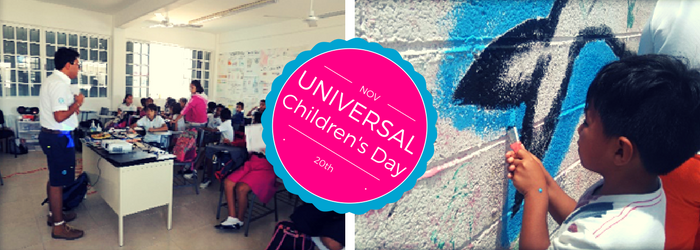Universal Children's Day

An environmental education is a huge part of a child's development.
The United Nations designated November 20 the Universal Children's Day, a date dedicated to all the boys and girls of the world. In particular, to call attention to the situation of disadvantaged children, make children’s rights known and raise awareness of the importance of working on their well-being on a daily basis.
The right to education is one of the most important children’s rights, which enables to acquire knowledge and thus achieve a purposeful social life for the economic, social and cultural growth of all societies.
Education also enables to convey common principles to the new generations, preserving the values in the same ecosystem, our planet. It is also one way to help break the cycle of poverty, which leads to socioeconomic backwardness and depredation of the environment.
Accordingly, through environmental education children can learn to change their vision and appreciation of nature, leading to positioning ecosystems and reverting their destruction because of predatory behavior driven by the search for short-term particular benefits, which is one of the biggest concerns according to the current planetary emergency.
In the process of appreciating the mutual relationship between man, his culture and the surrounding biophysical environment, environmental education helps raise awareness of the importance of the environment and promotes the development of values and new attitudes in the citizenry. This contributes to the rational use of natural resources and to the solution of environmental problems that we face in our city.
That is why it is important that on the Universal Children's Day education be one of the rights highlighted and, in particular, environmental education, because by reevaluating ecosystems and natural resources, we may expect present and future generations to use them in a sustainable manner.






